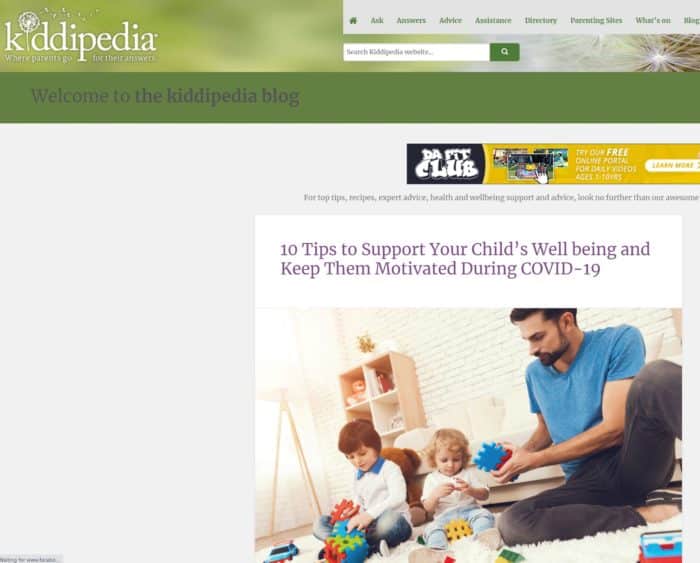In the media: Kiddiepedia.com Sharon Turner, Strathcona Girls Grammar’s Junior School Psychologist
COVID-19 has presented huge challenges for us all, and sadly our kids aren’t immune from the stresses it’s created. Between an incredibly disrupted school year, learning from home, missing friends, and not being able to do a lot of their regular extra-curricular activities, the pandemic has been tough on kids everywhere. It’s not surprising then that their motivation and general wellbeing can fluctuate.
Fortunately, there are a number of simple things you can do help maintain your child’s wellbeing, and keep them happy, healthy and on task during this tricky time.
- Sleep — Every parent knows what happens when a child or teenager gets overtired, and it’s not pleasant. Sleep is critical for development across all ages of childhood and adolescence, and while it can be tempting to be more relaxed about sleep routines during these unusual times, keeping these as normal as possible is incredibly important. Children and who are well rested are better able to regulate their emotions and stay focused to complete schoolwork and activities.
- Healthy eating — Again, every parent has experienced the irrational child or teenager who is hungry. The ability to stay on task and manage emotions is difficult for young people when their blood sugar levels drop and they feel hungry. Maintaining regular mealtimes that are similar to school eating times (or ones that are preferred at home), can help manage changes in mood and motivation. Another thing to keep an eye on is the availability of snack foods, which are often used as a distraction and a sugar hit, but quickly leave them feeling hungry again and cranky following the sugar crash. Having healthy foods readily available and maintaining regular eating times will decrease the temptation for frequent unhealthy snacks.
- Get outside and into nature — For younger kids, getting their hands dirty and into nature can be incredibly grounding and help with their sense of wellbeing. Get out together when there are breaks in your schedule and go for a walk or a bike ride. This will help increase those feel-good chemicals — endorphins, and assist with being focused for work upon returning.
- Family dinner time — Research suggests that when families regularly eat together, children are more likely to have higher self-esteem and success at school, and less likely to experience mental health issues. This is a silver lining to COVID-19 — families are eating meals more frequently together, presentings a great opportunity to get family conversations going and check in with each other.
- Try new experiences together — A sense of interest and wonder can go a long way in keeping your kids (and you) feeling positive and resilient during this time. What are your children interested in? Try some new activities with them that they’ve always wanted to do but you maybe haven’t had time for. Learn a dance together, try origami, do a yoga class, or cook a new recipe.
- Games — Playing games together helps children to feel that important connection with family which impacts their sense of wellbeing. Share the games you used to play as a child and have them teach you games that they like to play using technology, or that they’ve previously learnt at school. This way they can be the expert and you the novice.
- Do something for someone else — We know that our sense of wellbeing can be heavily influenced by how valued and useful we feel when we help others. Ask your kids what they think they might like to do for others. It might be sharing the new experience they’ve had with someone else, such as leaving an origami butterfly in the neighbour’s letterbox or teaching a friend a new skill via video call.
- Positive role modelling — Be mindful of how you are coping. Being around your children all day can be tiring, especially when you are working and trying to support them with online learning. Remember that they look to you for cues as to how to cope, so try and stay strong and manage your emotions in front of them. These are unprecedented times, so don’t be hard on yourself when things don’t go as you planned, just remember to role model good coping skills.
- Laugh — This is one of the most important things you can do for the whole family’s wellbeing. Whether you dress up in costumes, watch funny movies together or play games, you can’t beat a good laugh to make you feel good.
- Have a routine — Create a routine that works for your family based on both your needs and your kids’. Write up or print out the routine and put it on display so your kids know what is expected of them and when. Children are more likely to stay motivated if they can see there is break coming and when. For younger kids, use visuals and pictures to show the activities and then have them tick them off once they’re completed. For older kids, they might like to work at creating their own routine based on their requirements for the day. The more that they own it, the greater the likelihood they will stick to it.


Sharon Turner is the Junior School Psychologist at Strathcona Girls Grammar. She has been working as a registered Psychologist with children, adolescents, young adults and families for almost 25 years. B.A., Grad Dip App Psych., M. Psych., MAPS, FCEDP.
You may also like to read:
Dispositions Necessary for Children to Learn
The Secrets of How to Raise a Confident Child You Probably Don’t Know


